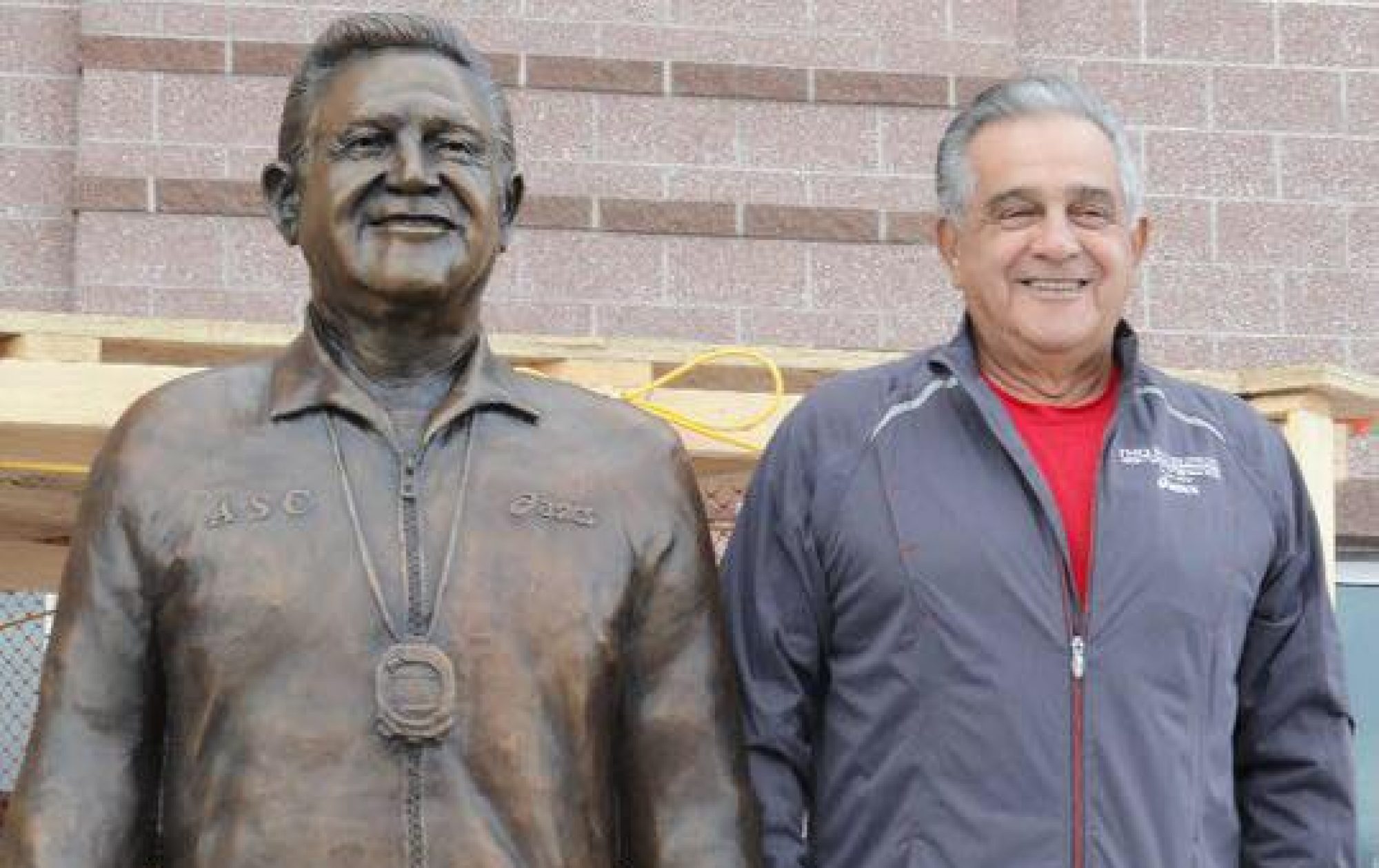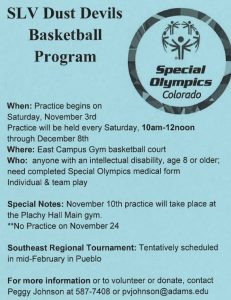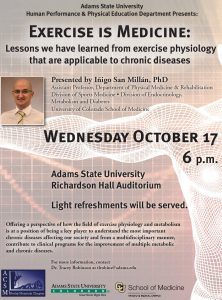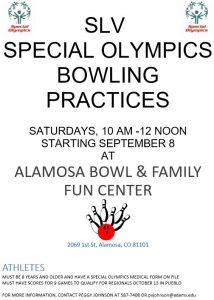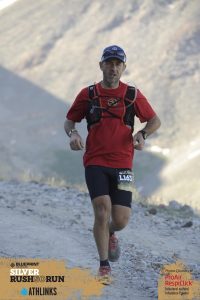Rocky Mountain American College of Sport Medicine Speaker on Campus
SLV Special Olympics Bowling Practices
ATHLETES
MUST BE 8 YEARS AND OLDER AND HAVE A SPECIAL OLYMPICS MEDICAL FORM ON FILE
MUST HAVE SCORES FOR 9 GAMES TO QUALIFY FOR REGIONALS OCTOBER 13 IN PUEBLO
FOR MORE INFORMATION, CONTACT PEGGY JOHNSON AT 587-7408 OR pvjohnson@adams.edu
Click on the link below for pdf of the flyer
Alamosa 1968: The Historic First U.S. Olympic Marathon Trials
On Friday/Saturday July 27-28, Adams State University will host a 50th reunion celebration
to commemorate the historic 1968 Alamosa Olympic Marathon Trials.
Here’s the complete, never-before-fully-told story of that event.
Resiliency
 Author: Neal Palles, MSW, LCSW, Applied Sport Psychology graduate student Twitter: @NealPalles
Author: Neal Palles, MSW, LCSW, Applied Sport Psychology graduate student Twitter: @NealPalles
Growing high in the mountains of the western United States is the bristlecone pine (pictured). The tree looks gnarled and old, often growing out of a small crevice in the rock, in a place that is harsh, winds can be high, and snow accumulates through the fall, winter, and spring, and doesn’t melt until mid-summer- on a good year. Here, a growing season is just a few short months, if that. These trees have been known to live upwards 5000 years.
They are resilient.
Resilience in humans has been described as the ability to use personal qualities to withstand pressure (Fletcher & Sarkar, 2016).
As athletes we have the capability of fostering resilience to overcome adversity, physical and mental challenges, and find success.
Like many athletic endeavors ultra-marathons provide the individual with plenty of opportunity for resilience to show. Conditions can often be harsh. Rain, snow, heat, lightning, hail and altitude are some of the environmental challenges. The physical challenge of moving your body through these conditions running and walking for hours, sometimes days on end requires the individual to be resilient. A recent race in Steamboat Springs, Run Rabbit Run, provided many examples. One woman, Courtney Dauwalter, the eventual winner, slowly lost her sight through the race, stumbling and tripping, hitting her head, struggling to stay on the trail, but persevered finishing 6th overall and winning the woman’s division.
How do athletes do it? How do you keep moving forward after getting hit again, and again? After you’ve fallen. In near blindness? How do you go on to win a game after both of your quarterbacks, your Heisman candidate running back, a receiver and a safety have all left the game like the Oregon Ducks did last night?
Researchers have identified a number of traits in resilient people that may be the keys to their success. These include: Strong social connections, an ability to set long-term and short-term goals, a focus on mastering skills, optimism, positive self-talk, a growth mindset, and strong belief in the self are some of those traits. These have to be combined in a cauldron of adversity. Small challenges a long the way help to build resilience. In order to build resilience you have to be willing to accept the challenge and most of all, learn from it.
Taking a closer look:
Positive social connections means that you have an ability to rely on others. It’s OK to ask for help. Create a network of positive people supporting you. Connect with others. Recent research into well-being recognizes that focusing on the other through kindness and gratitude can have tremendous benefits towards thriving.
Setting long-term and short-term goals allows you to be focused on the future, take for example an ultra-runner, focusing on the short-term, getting to the next tree, the next aid station. One foot in front of the other, gets them down the trail and too the finish line.
The author, Neal Palles, in the early miles of the Silver Rush 50
Mastering skills, may not seem as obvious but provides the athlete a way of improving – by letting go of their ego. You are mastering skills – not people. The better ultra-runner is able maintain a fast pace without getting sick, they know how to contend with problems that appear because they’ve learned the skills to contend with the problem.
You can’t go into an event not being optimistic, “well I have a 50/50 chance of making it.” Is not going to cut it. Optimism has to be realistic, but you have to remind yourself that our mind plays tricks on us.
This is where positive self-talk comes in. You have to be able to manage your self-talk and this takes practice, it’s a skill that has to be learned and practiced. Mental performance coaches can assist athletes in developing techniques to examine and restructure automatic thoughts and beliefs so they become rational, realistic and more positive. The biggest challenge is re-wiring them in the moment when you’re exhausted, and your energy is shot. This is why practicing these mental skills is so important.
Above all, developing a growth mindset is a key component in developing resilience. A growth mindset, discussed in Mindset by Carol Dweck, is a way of thinking and approaching our goals that recognizes we grow and learn from our failures.
Our failures are temporary, while they may set us back. It’s what we take away and learn from in those failures that allows us to grow. This article in the New Yorker by Maria Konnikova highlights that the growth mindset is a central element of resilience, allowing us to look at how we can grow from a situation as opposed to remaining stagnant.
Here is an example of the growth mindset at work: If an individual starts out in a running program and the first day they’ve gone too far and too fast, they’ll likely be hurting and may not run the next day, or the next. They may think to themselves I am no good at this, my body isn’t built for running, and they don’t run ever again. This is a fixed mindset. The approach from the growth mindset will examine how they ran, and approach it differently the next day, maybe they read a book, or decided to get a coach or talked to a friend that runs, and they keep running, and slowly, keep getting better.
How you believe you have control over a situation is known as self-efficacy. The knowledge that you have control over the situation is another factor allowing you to be be resilient. Taking ownership for what you can control gives you power. Placing it on outside sources – takes that power away from you.
Psychologist, and researcher on Grit, Angela Duckworth cites it best at 2:40 in this interview: “Angela Duckworth Talks Grit” Animals are put into challenging situations, where they were have the power to do something about the situation, eventually become resilient.
Creating a cauldron of adversity, and placing yourself into progressively challenging situations, allows you to practice and learn these skills. This is why a football coach will take out their best players for a time during practice. This is why running in all sorts of elements prepares you for a race. Accepting challenge is how you learn to become resilient. You leave with the experience that you can reflect and grow from.
Resilience isn’t something that comes overnight. It takes practice – and it takes mastery. Put your mind to work as well as your body to build that protective layer called resilience.
References
Fletcher, D. and Sarkar, M. (2016) Mental fortitude training: An evidence based approach to developing psychological resilience for sustained success, Journal of Sport Psychology in Action, 7 (3), 135-157, DOI: 10.1080/21520704.2016.1255496
50 year Olympic Trials Marathon Reunion and ASU Cross Country/Track and Field Reunion
Click the link for an article on the reunion from the Adams Stater Magazine
Damon Martin – Adams State University – Coach to Coach
Interview of Damon Martin (Head TF/XC Coach at Adams State University), conducted by distance coach Mike Hickey. Over the past 26 years in charge of the women’s program and 19 at the helm of the men’s (including an interim year in 1988), Martin has coached a total of 29 National Championship teams (15 women’s cross country, 9 men’s cross country, 2 women’s indoor track & field, 2 men’s indoor track & field, 1 men’s outdoor track & field), including a stretch of nine straight women’s cross country titles from 1991-99, another stretch of seven straight women’s titles from 2003-09 and two separate runs of three straight men’s cross country national titles (2008-10 & 2012-14). He has also guided athletes to 995 combined all-America honors and 100 individual national championships while coaching eight national championship relay teams
Mental Training Lab Opens
ASU Mental Training Lab
Riley Robbins

The ASU applied sport psychology graduate program, in collaboration with the ASU athletic department, is thrilled to announce the opening of our new mental training lab! This is an exciting opportunity for all ASU athletes to improve their mental skills in sport and maximize their potential. Many major American professional sports teams, elite Olympic-caliber athletes, and major universities around the world utilize mental skills training as part of their everyday practice routine.
The question many people have is: what are mental skills? Well, they are just that – skills! Some confuse mental skills with personality traits. For example, confidence, attitude, composure, resiliency and concentration are all skills that many believe you either have or you don’t. However, since they are skills, they are things that can be trained! At the mental training lab, our qualified graduate students can provide strategies and techniques for practicing mental skills so that athletes can play at their best. Dr. Brian Zuleger (click link for bio) an assistant professor in the Human Performance and Physical Education department is a certified consultant with the Association for Applied Sport Psychology and a member of the United States Olympic Committee Sport Psychology Registry and oversees the mental training lab as well as mentoring the graduate students. We highly encourage athletes to come visit us before there is a performance issue, or a slump, so that we can work together to avoid them!
We operate from an educational “build-it” model, rather than the traditional “fix-it” model that tends to simply apply band-aids to issues without addressing the underlying problem. If you are already experiencing performance issues, by all means, do not hesitate to come and see us. We will do our best to meet your needs as we will any athlete. Be aware, there are rarely any easy “fixes” when it comes to mental skills, but that does not mean it is not worth it to address weaknesses or even improve strengths. We ask you to keep in mind that those who work in the mental training lab are not licensed psychologists, and mental skills training is not therapy. If you are struggling with depression, substance abuse, or need crisis intervention or help with an eating disorder, please contact Lis Tomlin (719-587-7746) at ASU Counseling Services immediately.
If you have any questions regarding the mental training lab please contact Dr. Brian Zuleger brianzuleger@adams.edu, 719-587-7404
Free Lacrosse Clinic
The women’s lacrosse team is hosting a FREE lacrosse clinic this coming Saturday, 9/30 from 12 pm-2 pm. Registration starts at 11:30 on the lacrosse/soccer turf at ASU. This clinic is co-ed and open to ages 6-16. Required sport specific gear will be provided for the 2 hours. Bring water & appropriate attire. Sneakers or cleats and athletic clothing! Contact head women’s lax coach Angelica Gero agero@adams.edu for more information, or just show up at 111:30 am! Parents will have to sign registration waiver upon arrival.
